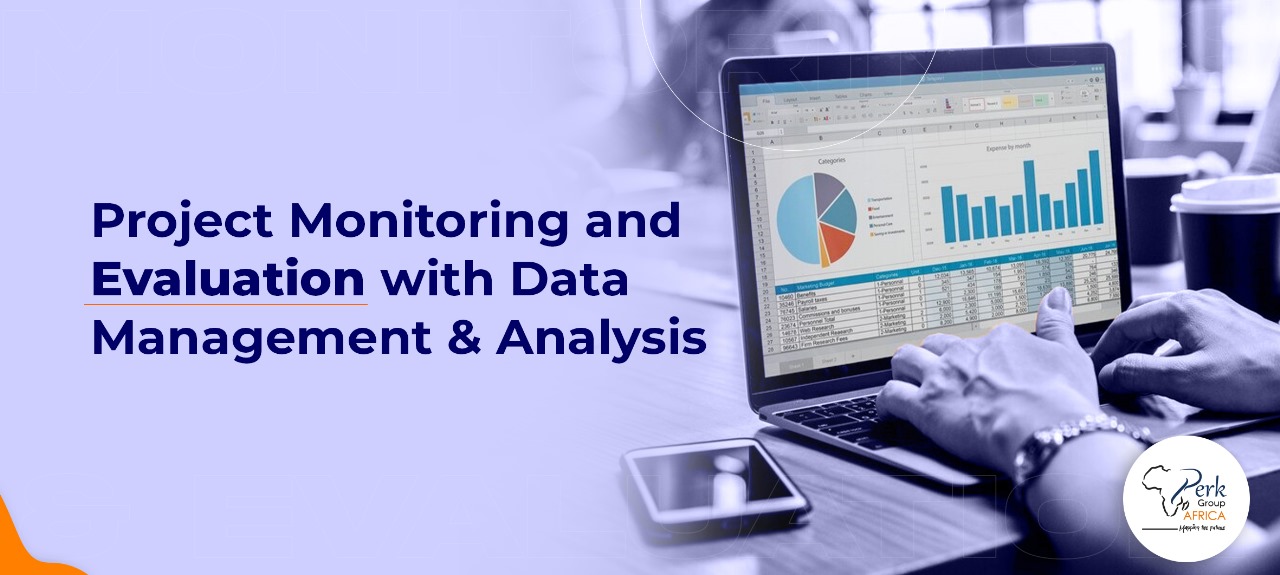
Training Course on Project Monitoring and Evaluation with Data Management and Analysis
Course Overview
This Project Monitoring and Evaluation with Data Management and Analysis course offers an impactful exploration of the principles and practices necessary for effective project monitoring, evaluation, and data management. This course is designed for professionals and practitioners involved in project management and evaluation who want to enhance their skills in monitoring project progress, measuring outcomes, and analyzing data for informed decision-making.
Through practical examples and hands-on exercises, participants will learn how to design and implement a comprehensive project monitoring and evaluation framework. They will gain insights into data collection methods, tools, and techniques for effective data management and analysis. Participants will also learn how to translate data into meaningful insights to drive evidence-based decision-making and project improvement.
By the end of the training, participants will:
- Have a comprehensive understanding of project monitoring and evaluation principles.
- Master key M&E concepts, including indicators, targets, baselines, and milestones, along with familiarity with frameworks such as the logical framework approach and results-based management.
- Gain practical skills in data management, including the design of effective data collection tools and the establishment of robust data management systems.
- Demonstrate proficiency in analyzing both quantitative and qualitative project data using tools like Excel, SPSS, or R.
- Implement techniques for data validation, cleaning, and quality assurance to ensure the accuracy and reliability of project data.
- Effectively interpret and communicate evaluation findings to diverse stakeholders through reports, presentations, and data visualization.
- Apply adaptive management principles for informed decision-making and improved project performance.
- Utilize hands-on learning experiences, including practical exercises and real-world project data application, to confidently apply acquired knowledge in professional settings.
Target Audience
This course is designed for project and program managers, monitoring and evaluation officers, data and research staff, development practitioners, and decision-makers involved in the planning, implementation, monitoring, and evaluation of projects. It is particularly suitable for professionals working in NGOs, civil society organizations, government institutions, donor-funded programs, and the private sector who are responsible for tracking results, managing project data, and using evidence to inform project decisions and improve outcomes.
Benefits to the Organization
Organizations whose staff attend this course will benefit from:
- Improved project planning, monitoring, and accountability
- Stronger data management and reporting systems
- Enhanced data quality and credibility of project results
- Better-informed decision-making and adaptive management
- Increased donor compliance and reporting effectiveness
- Improved project sustainability and impact
Benefits to the Participants
Participants will gain:
- Practical, job-relevant skills in project monitoring, evaluation, and data analysis
- Hands-on experience with M&E frameworks, tools, and software
- Improved confidence in managing and analyzing project data
- Enhanced ability to communicate results to diverse stakeholders
- Exposure to gender-responsive and participatory M&E approaches
- A Certificate of Completion upon successful completion
Course Duration: 10 days
Course Outline
Module 1.
Fundamentals of Monitoring and Evaluation
- Definition of Monitoring and Evaluation
- Why Monitoring and Evaluation is important
- Key principles and concepts in M&E
- M&E in project lifecycle
- Participatory M&E
Project Analysis
- Situation Analysis
- Needs Assessment
- Strategy Analysis
Module 2.
Design of Results in Monitoring and Evaluation
- Results chain approaches: Impact, outcomes, outputs and activities
- Results framework
- M&E causal pathway
- Principles of planning, monitoring and evaluating for results
M&E Indicators
- Indicators definition
- Indicator metrics
- Linking indicators to results
- Indicator matrix
- Tracking of indicators
Module 3.
Logical Framework Approach
- LFA – Analysis and Planning phase
- Design of logframe
- Risk rating in logframe
- Horizontal and vertical logic in logframe
- Using logframe to create schedules: Activity and Budget schedules
- Using logframe as a project management tool
Theory of Change
- Overview of theory of change
- Developing theory of change
- Theory of Change vs Log Frame
- Case study: Theory of change
Module 4.
M&E Systems
- What is an M&E System?
- Elements of M&E System
- Steps for developing Results based M&E System
M&E Planning
- Importance of an M&E Plan
- Documenting M&E System in the M&E Plan
- Components of an M&E Plan-Monitoring, Evaluation, Data management, Reporting
- Using M&E Plan to implement M&E in a Project
- M&E plan vs Performance Management Plan (PMP)
Module 5.
Base Survey in Results based M&E
- Importance of baseline studies
- Process of conducting baseline studies
- Baseline study vs evaluation
Project Performance Evaluation
- Process and progress evaluations
- Evaluation research design
- Evaluation questions
- Evaluation report Dissemination
Module 6.
M&E Data Management
- Different sources of M&E data
- Qualitative data collection methods
- Quantitative data collection methods
- Participatory methods of data collection
- Data Quality Assessment
M&E Results Use and Dissemination
- Stakeholder’s information needs
- Use of M&E results to improve and strengthen projects
- Use of M&E Lessons learnt and Best Practices
- Organization knowledge champions
- M&E reporting format
- M&E results communication strategies
Module 7.
Gender Perspective in M&E
- Importance of gender in M&E
- Integrating gender into program logic
- Setting gender sensitive indicators
- Collecting gender disaggregated data
- Analyzing M&E data from a gender perspective
- Appraisal of projects from a gender perspective
Data Collection Tools and Techniques
- Sources of M&E data –primary and secondary
- Sampling during data collection
- Participatory data collection methods
- Introduction to data triangulation
Module 8.
Data Quality
- What is data quality?
- Why data quality?
- Data quality standards
- Data flow and data quality
- Data Quality Assessments
- M&E system design for data quality
ICT in Monitoring and Evaluation
- Mobile based data collection using ODK
- Data visualization – info graphics and dashboards
- Use of ICT tools for Real-time monitoring and evaluation
Module 9.
Qualitative Data Analysis
- Principles of qualitative data analysis
- Data preparation for qualitative analysis
- Linking and integrating multiple data sets in different forms
- Thematic analysis for qualitative data
- Content analysis for qualitative data
Quantitative Data Analysis – (Using SPSS/Stata)
- Introduction to statistical concepts
- Creating variables and data entry
- Data reconstruction
- Variables manipulation
- Descriptive statistics
- Understanding data weighting
- Inferential statistics: hypothesis testing, T-test, ANOVA, regression analysis
Module 10.
Impact Assessment
- Introduction to impact evaluation
- Attribution in impact evaluation
- Estimation of counterfactual
- Impact evaluation methods: Double difference, Propensity score matching
- Causal inference methods (randomized control trials, quasi-experimental designs)
Note: This outline provides a general structure for a 10-day training program on Project Monitoring and Evaluation with Data Management and Analysis. The specific content, activities, and duration of each session may be adjusted based on the target audience, learning objectives, and available time.
Classroom Training Schedule
| Start Date | End Date | Location | Cost | Apply |
|---|---|---|---|---|
| Feb 23, 2026 | Mar 06, 2026 | Nairobi | $ 2000 | Register |
| Mar 30, 2026 | Apr 10, 2026 | Nairobi | $ 2000 | Register |
| May 04, 2026 | May 15, 2026 | Nairobi | $ 2000 | Register |
| Jun 08, 2026 | Jun 19, 2026 | Nairobi | $ 2000 | Register |
| Jul 13, 2026 | Jul 24, 2026 | Nairobi | $ 2000 | Register |
| Aug 17, 2026 | Aug 28, 2026 | Nairobi | $ 2000 | Register |
| Sep 21, 2026 | Oct 02, 2026 | Nairobi | $ 2000 | Register |
| Oct 26, 2026 | Nov 06, 2026 | Nairobi | $ 2000 | Register |
| Nov 30, 2026 | Dec 11, 2026 | Nairobi | $ 2000 | Register |
Virtual Training Schedule
| Start Date | End Date | Location | Cost | Apply | |||
|---|---|---|---|---|---|---|---|
| Feb 09, 2026 | Feb 20, 2026 | Online | $ 1000 | Register | |||
| Mar 16, 2026 | Mar 27, 2026 | Online | $ 1000 | Register | |||
| Apr 20, 2026 | May 01, 2026 | Online | $ 1000 | Register | |||
| May 25, 2026 | Jun 05, 2026 | Online | $ 1000 | Register | |||
| Jun 29, 2026 | Jul 10, 2026 | Online | $ 1000 | Register | |||
| Aug 03, 2026 | Aug 14, 2026 | Online | $ 1000 | Register | |||
| Sep 07, 2026 | Sep 18, 2026 | Online | $ 1000 | Register | |||
| Oct 12, 2026 | Oct 23, 2026 | Online | $ 1000 | Register | |||
| Nov 16, 2026 | Nov 27, 2026 | Online | $ 1000 | Register |
Course Language
This Training course is offered in ENGLISH . Please indicate the language of choice during registration.
Course Delivery
Presentations are well guided, practical exercise, a plenary presentation, and group work. Participants are encouraged to bring any data relevant to their job responsibilities. This is hands-on, product-oriented training and will mostly involve practical exercises. Each participant MUST bring along their own working laptop and android phone.
Certification
Upon completion of training, the participant will be issued with a certificate of Completion.
Tailor-Made Course
3 months post-training support, consultation, and coaching is a guarantee from us and will be available after the course.We can also do this as a tailor-made course to meet organization-wide needs. Contact us to find out more: training@perk-gafrica.com.
